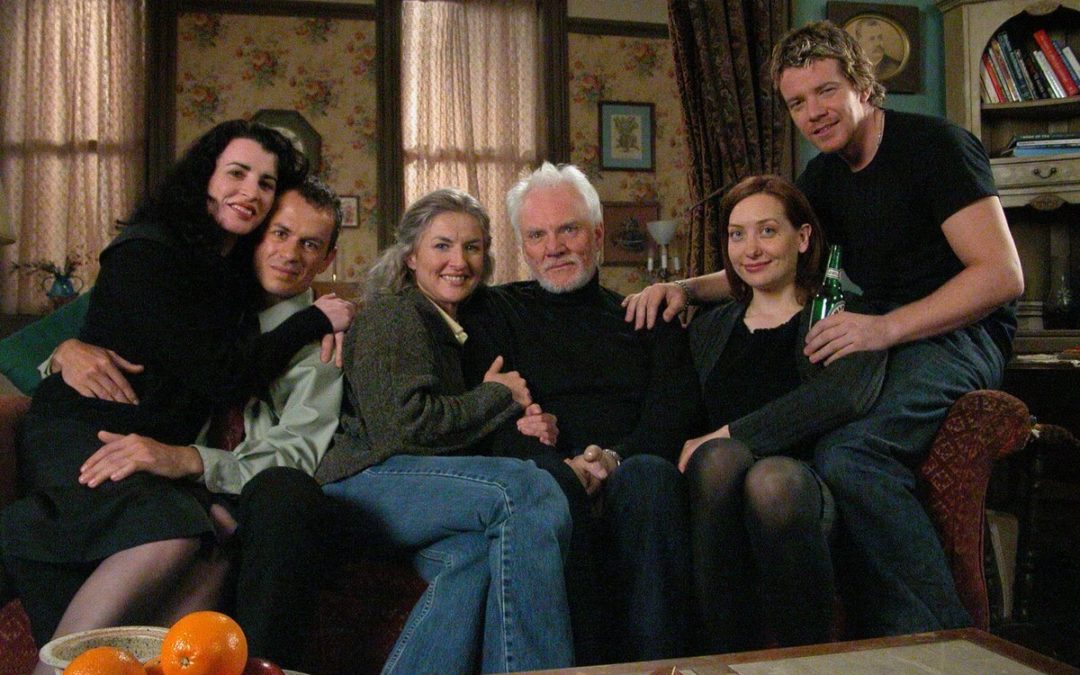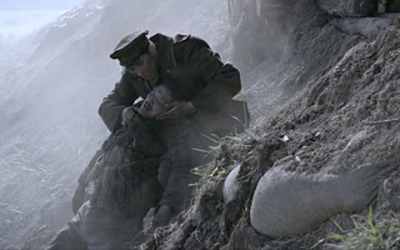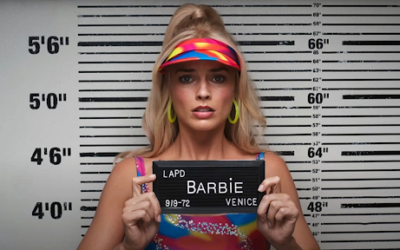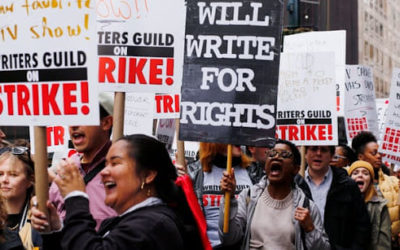On the Set: Red Roses & Petrol – Susan Lynch, Greg Ellis, Olivia Tracey, Malcolm McDowell, Heather Juergensen, Max Beesley
As we celebrate St. Patrick’s Day across the nation several forms of activity are expected from those taking part in the holiday: wearing green clothing, marching in parades, and more alcohol consumption than one would normally partake in. For those looking for less dangerous means of commemorating the holiday though, perhaps the time has come to take a look into the world of Irish independent cinema. The nation of Ireland is no stranger to the world of film; in fact, many major productions, from 1952’s “The Quiet Man” to the “Star Wars” sequel trilogy of the 2010’s, had been produced at least in part in the Irish isle. However, in recent years, many of the country’s own films have gained traction and interest, and with St. Patrick’s Day right around the corner, it’s only fitting to now take the time to spotlight some of the nation’s finest films. So without further ado, here are some examples of quality Irish independent cinema.
December Bride (1991) – seen by many as a condemnation of the Irish Catholic Church’s policies regarding traditional relationship structures, this early 1900’s set period drama follows Sarah, a young woman who takes two brothers as lovers and becomes pregnant, unwilling to marry either or even find out which is the father of her child. As the narrative progresses, Sarah’s refusal to conform to the Church’s standards puts her at odds with the clergy and her community, putting both her life and those of the men she loves in jeopardy. With its focus on a polyamorous relationship, the film is ahead of its time, allowing for a poignant look into unconventional love.
O’Donoghue’s Opera (1996) – the first musical film made in Ireland, this mock opera was originally filmed in 1965 but never saw full completion until over thirty years later. Starring Irish musician Ronnie Drew and his band The Dubliners, the film bases its narrative on the execution ballad “The Night Before Larry Was Stretched”, as it follows Drew, the “best burglar in all Ireland”, and the efforts of his friends to free him from the hangman’s noose he gets caught in. Mixing a spaghetti western aesthetic with a sense of humor rich in Irish authenticity, the result is a delightful comedy-musical that makes the decades it took to be completed worth the wait.
How to Cheat in the Leaving Certificate (1998) – shot in black-and-white on Super 16mm film, this debut feature from Irish director Graham Jones follows the plot of six teenagers to steal copies of their Leaving Certificate final school exams to avenge a close friend who committed suicide after his failed attempt to cheat. Using its unique cinematography to its advantage, the film takes the efforts of teenagers and plays them out with the scale and spectacle of a classic heist flick akin to “Ocean’s 11”, and if its 2004 American semi-remake “The Perfect Score” is any indication, there’s no denying\ the film has had some notable impact on the world of cinema.
Borstal Boy (2000) – set during World War II, this historical drama follows real-life Irish writer Brendan Behan as he is imprisoned following a failed bombing mission as part of the Irish Republican Army. During his time in Borstal, the youth detention center he is trapped in, Brendan finds himself coming to terms with his own personal struggles as the pressure of his imprisonment only gets more overbearing. Drawing inspiration from Behan’s autobiographical work, the film provides an engaging look at troubled youth affected by war, and shows how conflict between bitter enemies may not always be as black and white as it appears.
Red Roses and Petrol (2003) – based on the stage play of Irish writer Joseph O’Connor, this dark comedy-drama revolves around the death of Enda Doyle (played to perfection by acclaimed actor Malcolm McDowell), and the conflict that ensues among his dysfunctional family as they attempt to figure out what kind of person their recently deceased patriarch was in life. Elevated by a soundtrack courtesy of Celtic band Flogging Molly and Susanna Hoffs (daughter of director Tamar Simon Hoffs), the film is one emotional twist after another, and its insight into strained familial relationships is bound to strike a chord with audiences one way or another.
The Secret of Kells (2009) – animation studio Cartoon Saloon has become a breakout producer of highly acclaimed animated films, with works such as “Song of the Sea” (2014) and “The Breadwinner” (2017) gaining nominations for Best Animated Feature at the Academy Awards. It’s their debut (also Oscar nominated) feature, however, that stands out as the studio’s finest work yet. A fictionalized origin story for the Book of Kells, one of Ireland’s most renowned texts, the film incorporates several elements of Irish mythology into its narrative, resulting in a film that is every bit as visually breathtaking as the book at the center of the story.
Portrait of a Zombie (2012) – originally intended as a more straight-forward genre film, budget constraints forced director Bing Bailey to change his zombie horror film to more closely resemble a mockumentary format. While this significant style change could have easily become problematic, Bailey shows no signs of difficulty in his finished film, which follows an American documentary crew that becomes fascinated with a recently zombified young man and his family, who act as if nothing had changed. Compared favorably to the likes of “Evil Dead” and “Shaun of the Dead”, this film is yet another example of why zombies still live on in popular culture.




